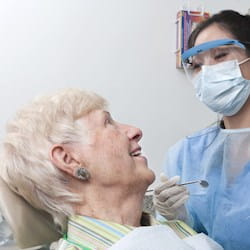ANTIBIOTIC prescribing by dentists in England rose in 2020 for the first time in many years, likely due to a decrease in face-to-face dental treatment under Covid-19 restrictions.
A report published by the UK Health Security Agency (UKHSA) found that antibiotic consumption in a dental setting increased by 17.6 per cent in 2020. The increase was despite the continued decline of total consumption of antibiotics, with even a larger decrease seen between 2019 and 2020 (10.9 per cent).
Primary care general practice accounts for 84.2 per cent of prescribing for items per 1,000 inhabitants per day – followed by dentistry at 10.3 per cent.
The new data also shows that antibiotic-resistant bloodstream infections fell in 2020 (from 65,583 in 2019, to 55,384) for the first time since 2016 but still remain at a higher level than six years ago. The decline was largely driven by a reduction in recorded bloodstream infections overall, which is likely due to less social mixing, enhanced hand hygiene and changes to healthcare access and delivery.
BDA Chair Eddie Crouch commented: “Antimicrobial resistance poses an even greater threat to human health than Covid. Sadly, the pandemic has wiped out years of progress in bringing down antibiotic use in dentistry.
“Placeholder prescriptions are now filling deficits in access and time, which the government has chosen not to factor in. Ministers have a responsibility to help dentists turn the page.”
This page was correct at the time of publication. Any guidance is intended as general guidance for members only. If you are a member and need specific advice relating to your own circumstances, please contact one of our advisers.
Save this article
Save this article to a list of favourite articles which members can access in their account.
Save to library
